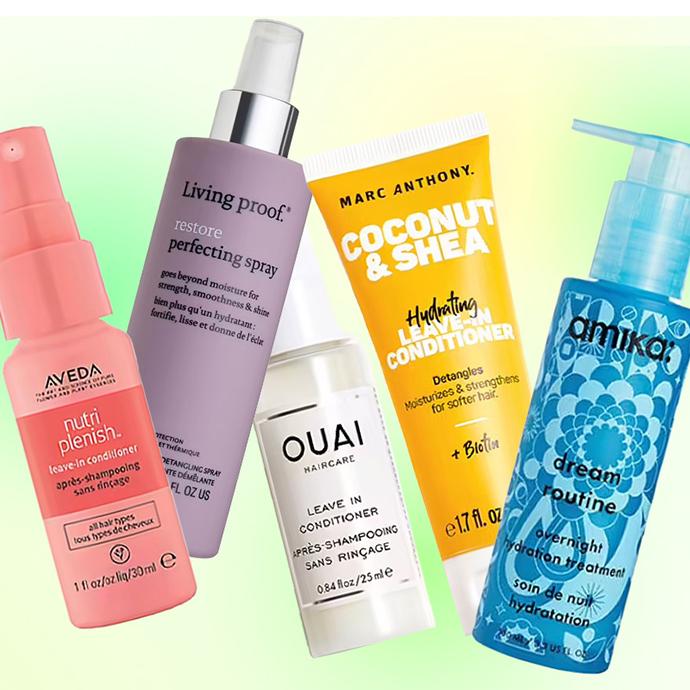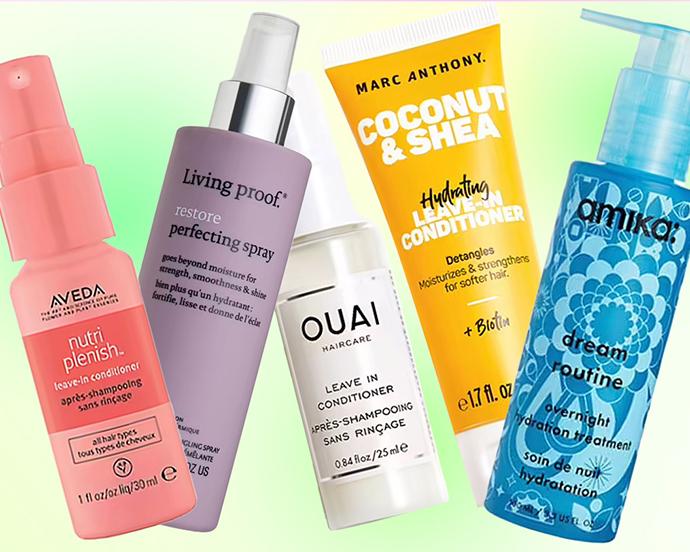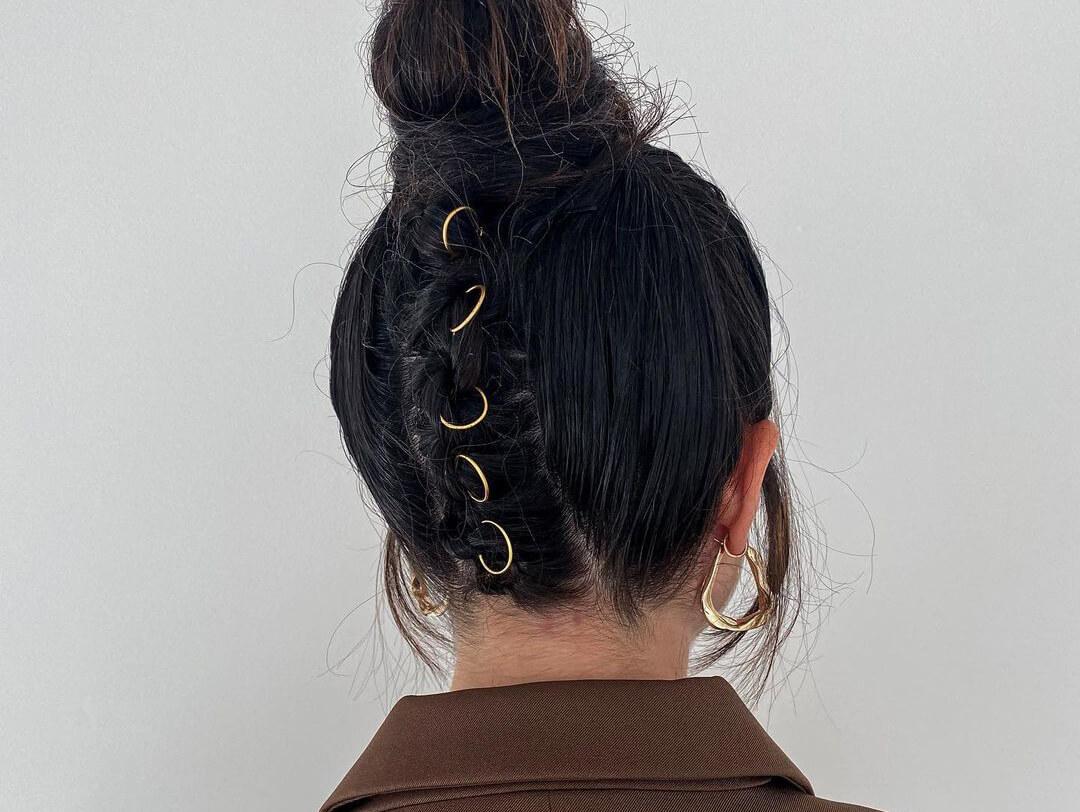How to Tone Your Hair to Keep Your Color Fresher, Longer



IPSY Editors


At your salon visits, you’ve likely wondered if a hair toner is really necessary when coloring your hair. To put it simply, it’s very necessary. Toner is the most underrated and explained step in the process of coloring your hair, as it ensures your color stays neutralized and balanced by correcting oxidation. If you want your color to last and stay looking fresh (which we all do!) toner is something you cannot skip out on.
You might not think twice about the difference it makes while you’re sitting in the salon chair scrolling on your phone, but the hair toner your colorist applies is working to ensure you achieve the perfect shade during your salon visit. It’s a key step whether you’re having your hair professionally colored or if you’ve decided to dye your hair at home. Your hair color also might need to be refreshed between salon appointments, so toning at home is sometimes recommended. Especially for blondes who might be turning a little brassy—nothing a little purple shampoo or toner can’t fix!
Read on for everything you need to know about hair toning to banish brassiness once and for all and to keep your hair looking as vibrant as it did the moment you step out of the salon.
It's about glam time you treated yourself.
Join IPSY

MEET THE EXPERT
George Papanikolas is a celebrity colorist and Matrix brand ambassador.
Lorena M. Valdes is an expert colorist at Maxine Salon in Chicago.
First, What Is Toner?
Toner is like a topcoat for your hair color that comes in a gel or gloss formula and lasts for three to four weeks. George Papanikolas, celebrity colorist and Matrix brand ambassador, describes toner by comparing it to panty hose. “It's a sheer, translucent color that helps balance out and neutralize unwanted tones, or helps enhance desired tones,” he says. If you’ve ever gotten a glaze or a gloss put in your hair, it’s essentially the same thing as a toner, which is demi-permanent. Think of it as a hair filter IRL that ensures pesky undertones don’t seep through and change the shade of your dye job. “A toner deposits color onto your hair through a gloss or glaze at a salon, but it can be in shampoo and conditioner forms as well,” adds Lorena M. Valdes is an expert colorist at Maxine Salon in Chicago.
While bleach works by lightening the hair and eventually grows out over time, toner deposits color and fades away gradually.
Who Should Use Toner?
A common misconception surrounding toner is that it only applies to blondes and bleached hair, however, a hair toner is a necessary step in protecting and reviving any hair color—whether you dye or highlight your hair. “Blondes can use it to neutralize unwanted yellow brassy tones, brunettes can use it to neutralize orange tones and red tones, and red heads can use toner to warm up and brighten their copper and red tones,” says Papanikolas. You don’t need to have platinum blonde hair to reap the benefits.
Toners come in an array of shades to balance out and refresh your hair color. If you get your hair highlighted, for example, your colorist may use a toner on your bleached hair to take your color from yellow blond to warm blonde, ashy blonde, or a golden blonde. It’s with toner that they are able to achieve this desired shade of blonde hair color, as everyone’s hair lifts differently based on your current hair color and other pigments present in the hair cuticle once the hair dye is applied. Depending on your natural hair color or the color of the dye beneath your current dye job, (whether it be subtle balayage or a total color change), other tones may try to come through. That’s where toner comes in: to correct any unwanted shades of color.
How To Use Hair Toner At Home
If you notice your color fading or are unhappy with the tone, you should consult your colorist before taking matters into your own hands. “If you’re able to buy a kit from your colorist, that would be the best way of using a toner at home,” says Valdes.
Not only can they provide direction and product suggestions if you aren’t comfortable visiting the salon, but they can talk you through the process to ensure you don’t interfere with your dye job if you tone hair at home. Follow this step-by-step for how to tone color-treated hair at home.
1. Shampoo Your Hair
If you decide to DIY your hair toner, the first step is to shampoo your hair to make sure it is as clean as possible.
2. Towel Dry Before You Start
Make sure to start with damp hair, it shouldn’t be soaking wet. Papanikolas recommends wearing gloves when you apply a toner to your hair and towel-drying before application. “To get the maximum toning, gently towel dry the hair after so the pigment is able to absorb more into the hair,” says Papanikolas.
3. Mix Well + Grab Your Brush
If you’re working with a salon-level toner, you’ll want to mix it with a volume developer in a 1:2 ratio. Next, while wearing gloves, use a brush to apply the toner to your hair, focusing on the areas where you want to correct the tone.
4. Wait, Then Rinse
Leave the toner on for 10-15 minutes, then rinse it out with a nourishing, moisturizing shampoo. Follow up your shampoo with a nourishing conditioner. Since toning products can dry out your strands, it’s important to restore hydration with a deep conditioner afterwards.
When Should I Use a Hair Toner?
A toner is a great touch-up in between salon appointments. “Toners usually last about a month or so depending on how sheer they are,” says Papanikolas. If you want your color to look as good as it does when you walk out of the salon, use a toner on a monthly basis. “They are usually non-ammonia and tend to be more gentle on the hair,” says Papanikolas.
While your hair colorist will typically apply a toner the day of your appointment, you might also want to apply a toning product at home to keep your color vibrant. “Usually, toner is recommended to be used the day you do your highlights and color, but if your hair tends to get brassy, you can also do it in between appointments.”
“Hair naturally oxidizes with sun and water,” says Papanikolas, so depending on how frequently you wash your hair and how much time you spend in the sun, you might benefit from a toning treatment for color correction in between appointments with your colorist (especially if you feel like you have brassy hair). “The ammonia in permanent color brings out the underlying orange pigments that all hair has, which makes the hair look more brassy,” Papanikolas explains.
How To Choose The Right Toner For Your Hair Color
Hairstylists refer to the color wheel to determine what color toner to use and choose a shade on the opposite end of the wheel. “If you look at the color wheel, the colors that neutralize each other are the ones that are on the opposite sides of the spectrum,” says Papanikolas. If they want to eliminate red undertones in dark hair, for example, they’ll reach for a green toner. If your brown tresses faded and are looking more like orange hair, a blue toner will be applied to correct the color and revive your brown or dark brown hair. Understanding the importance of the color wheel is important if you want to try toner at home.
While salon-level toners are best reserved for the pros, luckily you can now achieve similar results at home with a toning shampoo. “Luckily there are a lot of amazing at-home toner products,” says Papanikolas. For blondes, incorporating a purple shampoo (aka purple toner) into your routine once or twice a week will keep your hair looking vibrant and keep it from oxidizing (because no one wants yellow undertones and hair). If you want to use a more concentrated toner, try a leave-in product to banish brassy, yellow tones to restore cool, ash blonde hues. If you have brown hair, a blue shampoo and conditioner will ensure orange tones don’t seep through. For red hair, reach for a green shampoo to ensure your color doesn’t fade away.
Keeping your color from oxidizing is an important step in your hair care routine, especially as we turn to more home remedies than ever before. That's where toning shampoo and treatments come in. The right shampoo is the perfect home hair remedy to keep your color looking as good as it did when you left the salon chair and they're practically fool-proof—as long as you select the right shade for your hair color.
Looking for more beauty tips and personalized products? Take our Beauty Quiz now to get started with your own IPSY beauty subscription. Already an IPSY member? Refer your friends to earn points, which you can use toward products. Either way, don’t forget to check us out on Instagram and TikTok @IPSY.
Like this article? Share it with your friends by clicking the icons below!
Liked this post? Share!
Related Stories


Hair
5 New York Fashion Week Hairstyles We’re Already Planning to Recreate
Published on Feb 18, 2026 • 6 min read


Hair
The Best Hair Serums for Smooth, Shiny, Healthy Strands (No Bad Hair Days Here!)
Published on Feb 3, 2026 • 5 min read


Hair
The Top 18 Leave-In Conditioners for Every Hair Type & Concern
Published on Sep 16, 2024 • 10 min read


Hair
13 Best Hair Oils to Keep Your Strands Shiny and Moisturized
Published on May 14, 2024


Hair
Hair Cycling Is TikTok’s Latest Craze—Here’s How to Do It From the Pros!
Published on May 20, 2025 • 4 min read


Hair
The Butterfly Cut Is the Perfect Way to Show Off Long Layers and Curtain Bangs
Published on Feb 23, 2023


Hair
The ‘70s Hairstyles Are Back, And These Celeb-Approved Styles Will Get You In The Mood For A Throwback
Published on Dec 4, 2021


Hair
8 Hair Rings Hairstyles to Inspire Your Next Look
Published on Jul 29, 2022


Beauty Picked Just for You
Get 5 products worth up to $70
Plus exclusive access to epic deals up to 80% off
Starting at just $14/month. Cancel anytime.